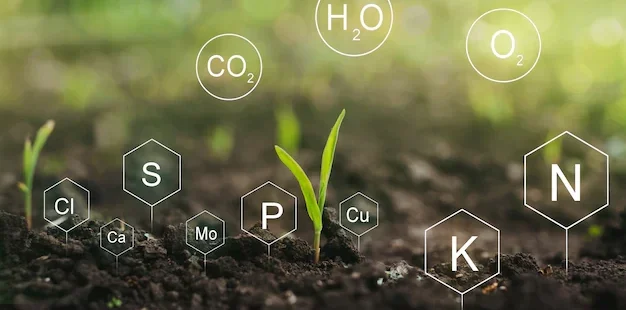Introduction:
Soil erosion is one of the most important environmental challenges facing modern agriculture. This leads to soil depletion, fertilization of land, and negative impacts on crop production, water retention, and biodiversity. Conventional farming practices, such as heavy tillage, mono-pipping, and excessive use of chemical fertilizers and pesticides, often contribute to increased soil erosion. In contrast, organic farming provides a sustainable alternative that not only protects the environment but also improves soil health. In this blog post, we will explore how organic farming can help reduce soil erosion and promote long-term agricultural sustainability.
How organic farming reduces soil erosion
1. Maintaining soil structure: Organic farming prefers minimal tillage, which means that the soil is disturbed less, and this practice helps to maintain soil structure. This results in better rooting and water penetration. Reduced disturbance helps maintain soil aggregates, which are groups of particles that form a stable structure. Healthy soil stops erosion by protecting against the forces of wind and water.
2. Cover crops and crop rotation: One of the main principles of organic farming is the use of cover crops and crop rotation. Cover crops such as clover, rye, and vetch are planted in the off-season to protect soil from erosion by wind and rain. These plants form a protective layer on the surface of the soil. Reduces the impact of rain and prevents soil particles from being washed away.
Crop rotation, another important practice in organic farming, involves changing the types of crops in a particular area. This approach prevents soil erosion and erosion by reducing the need for artificial fertilizers, which harm soil health. Crop rotation keeps soil structure and nutrient levels balanced, reducing the risk of erosion.
3. Organic Mulching: Organic mulching involves spreading natural materials such as straw, wood chips or compost over the soil. This mulch acts as a protective layer that protects the soil from harsh weather conditions. It helps retain moisture, prevents compaction, and protects against wind erosion. Mulch also enriches the soil as it breaks down, adding valuable organic matter and improving soil structure over time.
4. Promoting Soil Biodiversity: Organic farming promotes soil biodiversity, promoting a thriving ecosystem of beneficial microorganisms, earthworms, and insects. These organisms play an important role in preventing soil erosion. Earthworms, for example, create channels in the soil, improve soil structure, and help water penetrate the soil more easily. Microbial activity in organic soils helps break down organic matter and bind soil particles together, reducing the likelihood of soil erosion.
5. Reduced chemical wastage: Traditional farming practices often use synthetic fertilizers and pesticides, which can degrade soil quality and contribute to soil erosion. These chemicals not only harm the soil but also cause runoff, washing away topsoil and polluting nearby water bodies. However, organic farming, which avoids the use of these harmful chemicals, continues to promote more sustainable and erosion-resistant farming systems. Using natural fertilizers, compost, and biological pest control methods makes the soil healthy and erosion-free.

Frequently Asked Questions (FAQ)
Organic farming generally uses less water than conventional farming, because healthy soil holds moisture better and reduces runoff. Practices such as mulching and organic composting promote water conservation and efficient water use.
Organic farming reduces soil erosion by using minimal tillage, cover crops, crop rotation, and organic mulching. These practices help maintain soil structure and prevent loss of topsoil, unlike conventional agriculture, which often involves heavy tillage and chemical use.
Yes, organic farming can be highly productive while reducing soil erosion. By focusing on soil health through sustainable practices, organic farming creates a resilient ecosystem that supports higher yields and reduces erosion.
Cover crops are plants grown to protect the soil between main crop cycles. They help prevent erosion by protecting the soil from wind and rain, improving soil structure, and providing soil-enriching organic matter.
Conclusion:
Organic farming is not just about producing food without synthetic chemicals; It is also about preserving and enhancing soil health for future generations. Organic farming can reduce soil erosion and improve soil health through practices such as minimum tillage, crop rotation, cover crops, organic mulching, and increasing biodiversity. This sustainable approach ensures that the land is productive, resilient, and capable of supporting future crops without degrading or damaging the environment.
